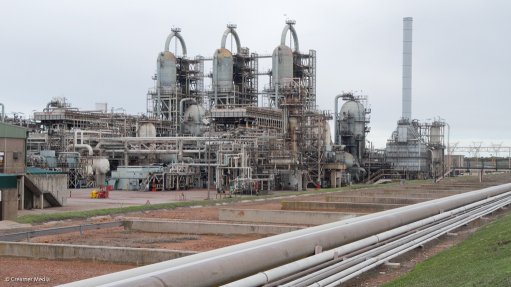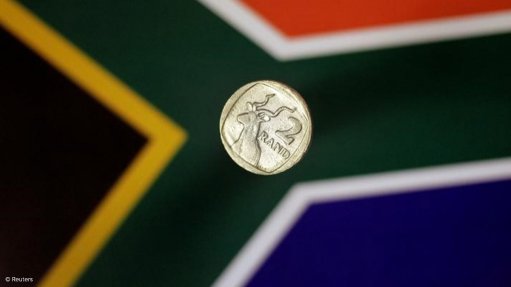Media focus to remain on #everythingmustfall, taxes and govt expenditure
Two issues are currently dominating the media and are expected to continue doing so for many months to come – quite possibly, even beyond the February 2016 national Budget. These are ‘everything-must-fall’, on the one hand, and taxes and government expenditure, which must increase if the everything-must-fall campaigners get their way.
Although the counterbalance that taxes offer to the #mustfall campaigns is obvious, this fact seems to be totally lost on the campaigners themselves. As any rational person knows, there is an economic cost to everything in life; nothing in life is free – someone has to pay for it, and someone always does. This seems to have been ignored by the campaigners, as a poster at one of the recent #mustfall protests attests: “We want access to free education.
The poster reminded me of a colleague of many a year ago, who, when asked for his ‘expert’ opinion, would say: “Free advice? You get what you pay for.” Someone has to pay, it should become a matter of affordability, a priority of expenditure, and of opportunity cost. ‘Free’ costs money.
One does not have to be an economist or an accountant to realise that there are limits to that which can be provided free and to the amount of revenue that needs to be generated through an increase in taxes or the imposition of additional taxes to pay for that something that is provided free of charge. An added concern is the unabated appetite for increased expenditure at all levels of the South African government, which is often termed ‘wasteful expenditure’.
South Africa is a country of contradictions, characterised by calls for an increase in ‘free’ services and goods, increases in subsidies and social grants, as well as government-imposed increases in administered prices and increases in government expenditure. All these increases have to be paid for by an increase in a single revenue source – tax. This is simply not sustainable – something has to give. As things stand, South Africa has a very small, static tax base (3.2-million taxpayers are responsible for 99% of all income tax, the highest revenue- generating category), a large population (estimated at 52.98-million), and very high levels of unemployment (25.5%, with the expanded definition putting the figure at 34.4%). There are more people who depend on social grants than there are taxpayers, and the country’s woes are exacerbated by persisting deindustrialisation, declining mineral production, and the impending drought in the agriculture sector.
South Africa is a country that is only able to sustain its budget deficit owing to portfolio investment – the most mobile and complacent of investments. It is also a country in which the world has greatly lost economic confidence, as is evidenced by international rating agencies’ sovereign rating adjustments. South Africa is in a precarious position being just a notch or two above ‘junk bond’ status, the consequences of this status being breached would in itself be a crisis of major proportions.
To add to its challenges, South Africa has, in recent years, become synonymous with the term ‘load-shedding’ (also known as ‘rolling blackout’, or feeder rotation) and is now expanding the English vocabulary to include ‘water- shedding’. Keeping in theme, it should consider adding ‘job-shedding’.
Yet government, which bears direct responsibility for the ‘shedding’ phenomenon, is not itself a participant – far from it. Consider its bloated workforce and increasing expenditure. To add insult to injury, government’s explanation in defence of its ‘noninfrastructural’ expenditure is more often than not outsourced – from the most senior to those acting on instruction. (I am writing this as Armscor, the Defence Force’s acquisitions agency, is planning to buy the President a R4-billion VIP jet.)
Coming back to ‘free’, as to who would be paying for the ‘free’ it too is being abdicated. Abdicated to those perceived to have the means to do so – the ‘wealthy’. In the context of South Africa, it would be intriguing to know the definition of what constitutes ‘wealthy’. If anything, given their income and business interests, government officials are surely befitting of the classification ‘wealthy’. In the 2014/15 financial year, government spent R329- billion on salaries for its 1.4-million workforce.
Chicken Dumping Rebate
Last week’s instalment of this column, titled ‘A game of chicken’, dealt extensively with South Africa’s trials and tribulations in its deliberations, or lack thereof, with the US on the African Growth and Opportunity Act (Agoa). Although it is not customary for me to write a follow- up article, recent events have necessitated doing so. On November 5, US President Barack Obama indicated that, by January 4, 2016, (that is, after 60 days) South Africa could exit Agoa. The US President’s frustration was quite evident in his letter to Congressional leaders, in which he indicates, besides others, that “I am taking this step because South Africa continues to impose several long-standing barriers to US trade, including barriers affecting certain agricultural exports; I have determined that South Africa is not making continual progress toward the elimination of barriers to US trade and investment as required by Section 104 of Agoa.”
Then, in the Government Gazette of October 30, in yet another first, the International Trade Administration Commission of South Africa (Itac) published, for comment, the proposed rebate of the full antidumping duty on bone-in cuts of the species Gallus domesticus (known to most as chicken), frozen, classifiable in tariff subheading 0207.14.9, and imported from or originating in the US; and draft guidelines pertaining to a rebate provision of the antidumping duty. Comment was due by November 14.
Could this be too little, too late? What, if anything, could South Africa’s trading partners learn from the US’s approach?
Export Value Rule
The South African Revenue Service (Sars) has invited comment on the amendment of Rule 73 (currency conversion) of the Customs and Excise Act, 1964; comment is due by November 20. The proposed rule amendment extends currency conversion to the value of goods exported if that value is expressed in a foreign currency.
Sugar Duty Increase
Sars has informed of increases in the rate of customs duty on sugar, classifiable in tariff subheadings 1701.12, 1701.13, 1701.14, 1701.91, and 1701.99 from 207c/kg to 242.6c/kg.
Garlic Dumping Duty
Sars has informed of an increase in the rate of antidumping duties on garlic, classifiable in tariff subheadings 0703.20 and 0712.90.90, originating in or imported from the People’s Republic of China (China) from 1 037c/kg to 1 925c/kg.
Furniture Rebate
Itac has published guidelines, rules and conditions pertaining to fabrics imported for the manufacture of upholstered furniture.
Comments
Press Office
Announcements
What's On
Subscribe to improve your user experience...
Option 1 (equivalent of R125 a month):
Receive a weekly copy of Creamer Media's Engineering News & Mining Weekly magazine
(print copy for those in South Africa and e-magazine for those outside of South Africa)
Receive daily email newsletters
Access to full search results
Access archive of magazine back copies
Access to Projects in Progress
Access to ONE Research Report of your choice in PDF format
Option 2 (equivalent of R375 a month):
All benefits from Option 1
PLUS
Access to Creamer Media's Research Channel Africa for ALL Research Reports, in PDF format, on various industrial and mining sectors
including Electricity; Water; Energy Transition; Hydrogen; Roads, Rail and Ports; Coal; Gold; Platinum; Battery Metals; etc.
Already a subscriber?
Forgotten your password?
Receive weekly copy of Creamer Media's Engineering News & Mining Weekly magazine (print copy for those in South Africa and e-magazine for those outside of South Africa)
➕
Recieve daily email newsletters
➕
Access to full search results
➕
Access archive of magazine back copies
➕
Access to Projects in Progress
➕
Access to ONE Research Report of your choice in PDF format
RESEARCH CHANNEL AFRICA
R4500 (equivalent of R375 a month)
SUBSCRIBEAll benefits from Option 1
➕
Access to Creamer Media's Research Channel Africa for ALL Research Reports on various industrial and mining sectors, in PDF format, including on:
Electricity
➕
Water
➕
Energy Transition
➕
Hydrogen
➕
Roads, Rail and Ports
➕
Coal
➕
Gold
➕
Platinum
➕
Battery Metals
➕
etc.
Receive all benefits from Option 1 or Option 2 delivered to numerous people at your company
➕
Multiple User names and Passwords for simultaneous log-ins
➕
Intranet integration access to all in your organisation


















